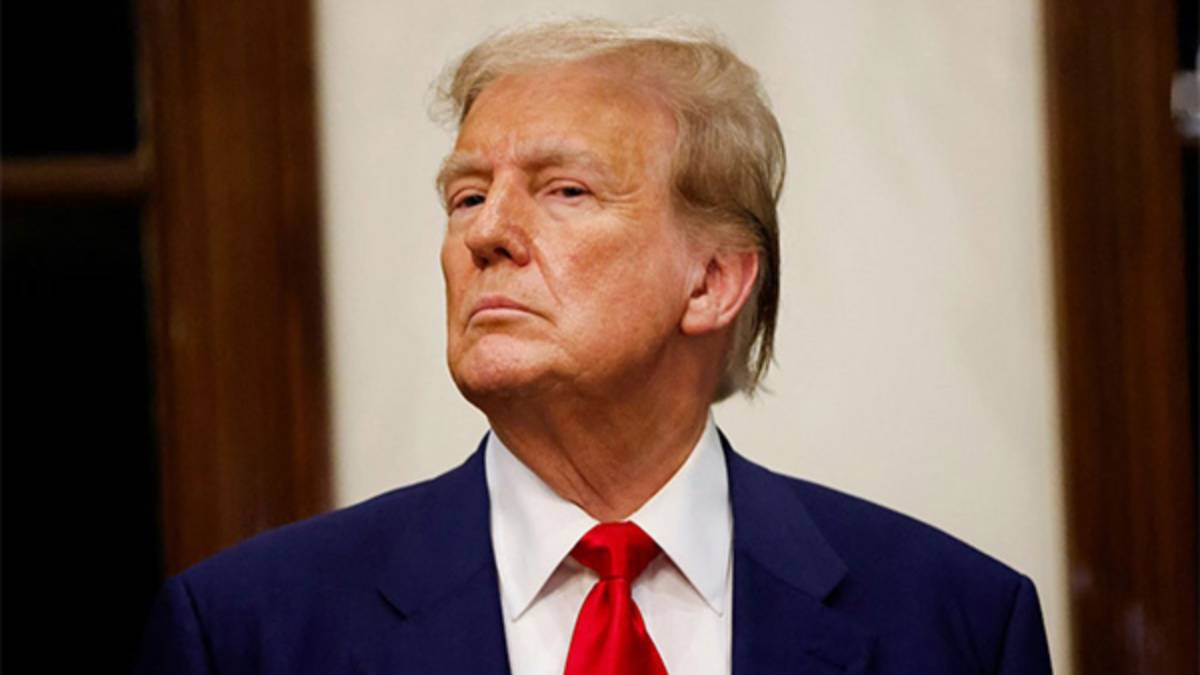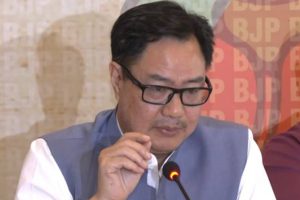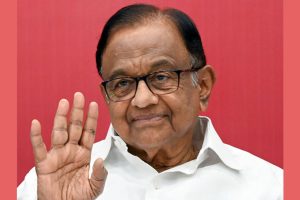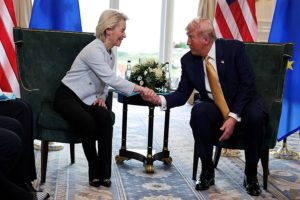U.S. President Donald Trump on Sunday claimed credit for brokering a ceasefire between Thailand and Cambodia, calling it “an easy one” compared to his earlier assertions of resolving the conflict between India and Pakistan.
Speaking to reporters during a meeting with European Commission President Ursula von der Leyen, Trump said he used trade negotiations as leverage to push the Southeast Asian nations toward peace. “We do a lot of trade with Thailand and Cambodia, and yet they’re killing each other. I said this should be an easy one for me because I’ve settled with India and Pakistan,” Trump remarked.
Despite his optimistic claims, fresh artillery exchanges between Cambodia and Thailand were reported just hours after his ceasefire announcement. Both nations accused each other of launching attacks, even as they expressed willingness to negotiate following Trump’s calls to their leaders on Saturday night.
The century-old territorial dispute between the two nations, rooted in colonial-era border demarcations, has recently escalated, leaving over 30 dead—including 13 civilians in Thailand and eight in Cambodia—and prompting the evacuation of more than 200,000 people from border areas.
Trump detailed his phone conversations with the Cambodian Prime Minister and the acting Prime Minister of Thailand: “I said, ‘We’re not going to make a trade deal unless you settle the war.’ And I think by the time I got off, they wanted to settle now.”
He also invoked his role in the May ceasefire between India and Pakistan, which followed the deadly April 22 terror attack in Pahalgam that killed 26 civilians. India launched retaliatory precision strikes under Operation Sindoor, while Trump claimed he helped ease tensions. However, Indian officials maintain that the ceasefire came after Pakistan’s military initiated contact to halt hostilities.
“If I can get these things settled using trade, it’s my honour,” Trump added, reaffirming his belief in economic pressure as a diplomatic tool.
Despite ongoing violence, Trump remains confident in his diplomatic influence. However, the evolving situation in Southeast Asia casts doubt on the immediate effectiveness of his claimed intervention.





